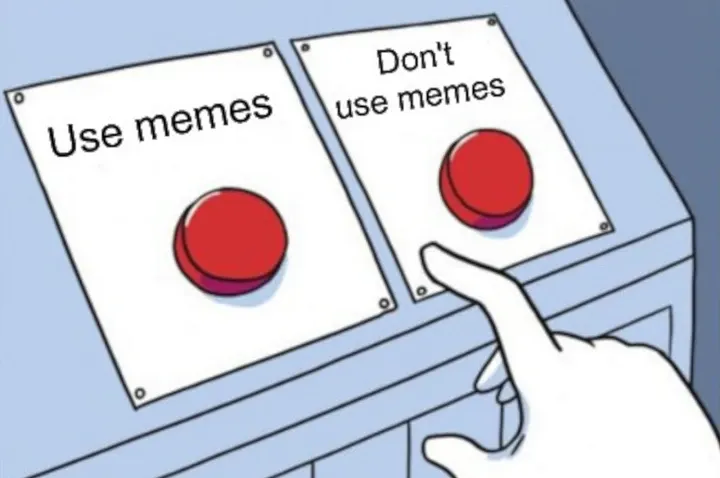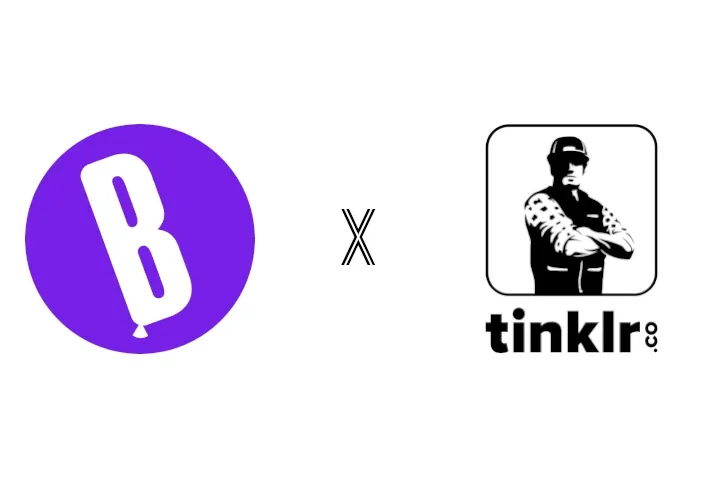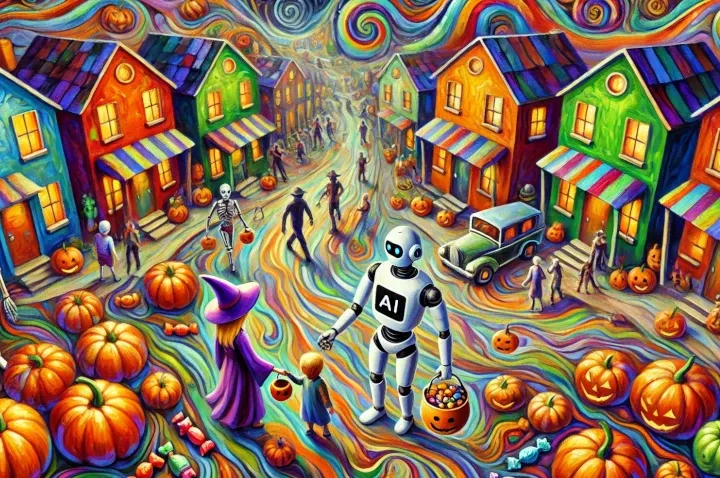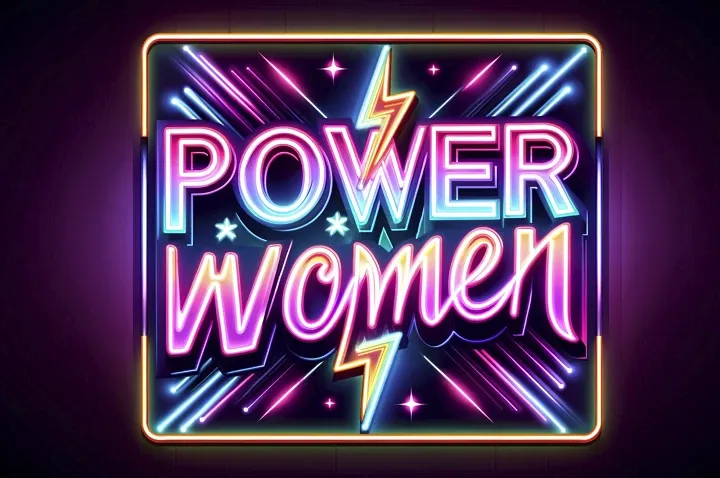To Meme or Not to Meme?
The benefits and considerations when using memes as part of your social media strategy.

As a marketing tool, social media tactics can reign supreme but when attention spans are shorter than ever, businesses are constantly searching for innovative ways to capture their audience's attention. One strategy that has gained popularity in recent years is the use of memes. Memes, those humorous images, videos, or pieces of text that have the capacity to spread widely (aka go viral) across the internet are at the forefront of online culture. So, should businesses jump on the meme bandwagon? And what are the pros and cons?
To meme or not to meme?...

They’re funny: A key benefit to using memes is that they’re funny. If done well, humor is a universal language that bridges gaps and fosters connections. Memes, with witty captions and relatable imagery, can elicit amusement and create a positive association for your brand, leaving a lasting impression on their audience.
Memes are timely: Memes thrive on relevance, riffing on current events, pop culture phenomena, or trending topics. This inherent timeliness allows businesses to inject themselves into ongoing conversations and stay top-of-mind among their audience. By tapping into the pulse of the internet, businesses can demonstrate their agility and awareness, positioning themselves as dynamic and engaged entities.
They can make you culturally relevant: Memes are cultural signifiers, reflecting the attitudes, values, and experiences of a particular community or demographic. By embracing memes, businesses can demonstrate their cultural fluency and connect with their audience on a deeper level. Whether it's referencing a beloved TV show or poking fun at societal norms, memes enable businesses to forge meaningful connections based on shared cultural touchstones.
They are simple: In a world inundated with information, simplicity is key to capturing attention and conveying messages effectively. Memes can distill complex ideas into bite-sized, visually engaging content that resonates with audiences across diverse backgrounds. Through clever imagery and concise captions, businesses can communicate their key messages in a manner that is easily digestible and memorable.
Memes are cost-effective: Traditional advertising channels often require significant financial investment, but memes offer a budget-friendly alternative. With the proliferation of meme generators and social media platforms, businesses can create and distribute content at minimal cost.
You can reach a younger audience: Memes have emerged as a cultural currency among younger demographics, particularly Gen Z and millennials. These digital natives are highly attuned to memes and actively seek out brands that speak their language. By incorporating memes into their marketing strategy, businesses can attract and retain younger audiences, cultivating long-term brand loyalty and advocacy.
Memes allow you to build brand personality and loyalty: Memes offer a unique opportunity for businesses to showcase their personality and values in a light-hearted and relatable manner. By infusing humor and wit into their content, businesses can humanize their brand, forging authentic connections with their audience.
How might a meme social media strategy work for a small service led business?
A dog walker might create a meme series where they share ongoing meme content featuring dog-related scenarios or behaviors that dog owners can relate to, like begging for treats, being overly excited about going for a walk, or hogging the bed. The dog walker might use the same dog to create a sense of familiarity, or the dogs that he/she walks to show connection and authenticity. By posting these regularly, the dog walker can keep their audience entertained while subtly reminding them of the services they offer – and all at no cost.
Sound like a ‘no-brainer’ right? So, what are the considerations businesses need to be aware of when using memes?
Memes only work when they’re relevant: Memes should be relevant to both the brand and its audience. Using memes that have no connection to the business or its products/services can come off as forced and insincere. It's essential to select memes that align with the brand's values, messaging, and target demographic.
Timeliness is key: We’ve identified that using memes is a great way to keep your brand culturally relevant, but because memes are inherently tied to internet culture, they have a relatively short lifespan. Businesses need to stay updated on current trends and memes to ensure their content remains timely and resonates with their audience. Using outdated or overused memes can make a brand appear out of touch and decrease engagement.
There’s a fine line between humor and offensiveness: Humor is subjective, and what may be funny to one person could be offensive or off-putting to another. Businesses must carefully consider the tone and content of memes to avoid inadvertently offending their audience or causing controversy. It's crucial to steer clear of memes that rely on sensitive topics or offensive humor.
Brand image: Memes can influence how consumers perceive a brand. Businesses should ensure that the memes they use are consistent with their brand image and messaging. Memes that clash with the brand's identity or values can confuse consumers and dilute the brand's message.
Originality: While it's tempting to jump on popular meme trends, businesses should strive for originality whenever possible. Creating unique and creative memes can help a brand stand out and showcase its personality. Additionally, original memes are less likely to become stale or overused quickly.
The decision of whether to incorporate memes into a business's promotional strategy is not one to be taken lightly. While memes offer numerous benefits, including humor, timeliness, and youth appeal, businesses must also be mindful of potential pitfalls such as outdated content and offensiveness. By striking the right balance and approaching meme marketing with caution, businesses can harness the power of memes to elevate their brand and connect with their audience in meaningful ways. So, to meme or not to meme? The answer lies in careful consideration and strategic implementation.





